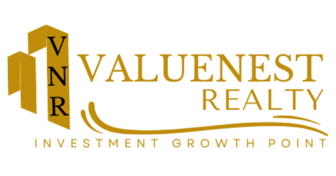Valuenest Realty introduces Glacial Meadow by Cloudstone Buildwell, a premium hill property investment opportunity
Real Estate Trends: Key Insights for Investors
The real estate market continues to evolve, driven by shifting demand, technological advancements, and changing buyer preferences. Residential properties in suburban and semi-urban areas are gaining traction due to remote working trends, while luxury homes and vacation rentals remain strong investment options. Commercial real estate is adapting, with a rise in demand for flexible office spaces and co-working environments. Investors are also looking towards sustainable and eco-friendly developments as environmental concerns grow. Understanding these market dynamics, along with proper research and strategy, can help you make informed, high-return investments in today’s changing landscape


How to Get Started in Real Estate Investments: A Quick Guide
Assess Your Financial Situation
Determine your budget and investment capacity.
Understand your risk tolerance and financial goals (e.g., rental income, capital appreciation).
Research Property Types
Explore options like residential, commercial, and industrial properties.
Choose based on market trends and your investment preferences.
Understand Market Trends
Stay updated on local real estate trends, price fluctuations, and future developments.
Research emerging high-growth areas.
Explore Financing Options
Look into mortgages, loans, or partnerships to fund your investments.
Consider government schemes or incentives available for first-time investors.
Seek Professional Advice
Consult real estate agents, financial advisors, and legal experts for guidance.
Get help with property selection, legal paperwork, and market insights.
Diversify Your Portfolio
Spread investments across different property types to reduce risks.
Focus on high-demand locations to ensure long-term value.
Take Action and Invest
Once you’ve done thorough research, start small and gradually expand your portfolio.
Monitor the market regularly and adjust your strategy as needed.
By following these steps, you can confidently begin your journey into real estate investing.
What is the best type of property to invest in?
Residential properties are a great starting point, but commercial and industrial properties offer higher returns.
The choice depends on your budget, risk tolerance, and long-term goals.
How do I finance my real estate investment?
Options include mortgages, loans, private lenders, or partnerships. Ensure you have a solid financial plan before committing.
What are the risks of investing in real estate?
Market fluctuations, maintenance costs, tenant issues, and legal complications are common risks. Diversify your investments to mitigate these risks.
How do I calculate potential returns on an investment?
Use metrics like rental yield, capital appreciation, and ROI. Consider factors like location, property condition, and local market trends.
How much capital is needed to start?
The amount depends on the type of property and location. However, it’s possible to start with a modest investment by leveraging financing options.
FAQs for New Real Estate Investors

Contact
Support
A61, SECTOR - 65, NOIDA, UTTAR PRADESH - 201301
© 2024. All rights reserved by ValueNest Realty
0120-4137886
